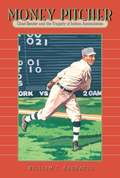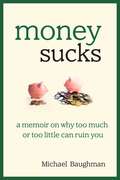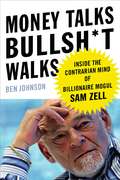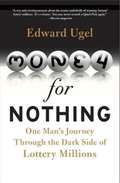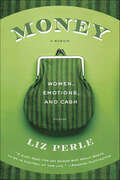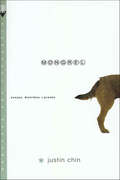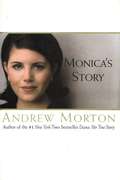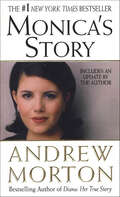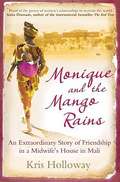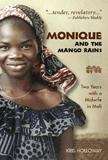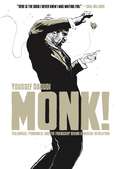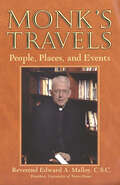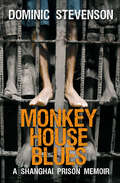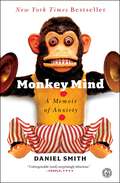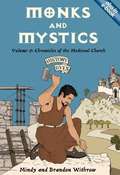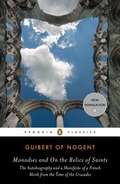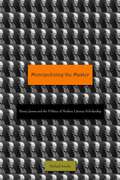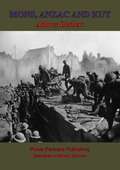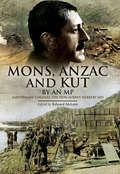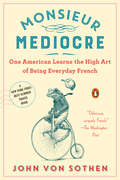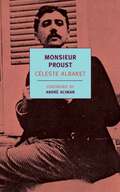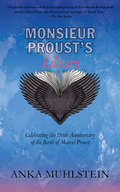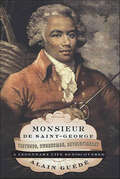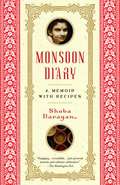- Table View
- List View
Money Pitcher: Chief Bender and the Tragedy of Indian Assimilation
by William C. KashatusAs Bender's story is told, the U.S. government's attempts to eradicate Native American culture is also chronicled. "Bender, a standout pitcher for the Carlisle Indian Industrial School, became the great hope of Native American athletes. Just six years before his arrival at the central Pennsylvania boarding school, the federal government, fresh from its final military encounter with Indians at Wounded Knee, South Dakota, instigated an aggressive assimilation process designed to extinguish Indian culture. Baseball was an important vehicle in that process. The game was taught at all government-sponsored Indian boarding schools as a means of cultivating Anglo-American values of teamwork, sportsmanship, and individual achievement. Those who excelled at the sport could enter the white mainstream through semipro and minor league ball." And, while "assimilating" they had to endure the blatant racism prevalent in American sports and sportswriting.
Money Sucks: A Memoir on Why Too Much or Too Little Can Ruin You
by Michael BaughmanA funny and touching story about how to deal with the struggles of adulthood, how to live a good life, and how money can complicate it all.Michael Baughman's hope was to send his oldest grandson off to his first year of college in the fall of 2012 with an informed and thoughtful attitude toward what has long been a powerful American fixation: the frantic quest for money. Complicating the issue was the fact that income disparity in America was increasing alarmingly, and a political campaign featuring a wealthy Republican presidential candidate who told transparent lies on a daily basis was well underway.Baughman, now an emeritus professor of English, has visited forty-nine states. As a youth he attended Punahou, the private Honolulu prep school that graduated Barack Obama. During subsequent travels he washed dishes, pumped gas, butchered meat, sold women's lingerie at Saks Fifth Avenue in Manhattan, and served as an enlisted man in the Army.Because of these diverse experiences, Baughman's friends and acquaintances have included the very poor as well as the very rich. Throughout most of his adult life his own income has been close to the national average. He brought all of this, and more, into his parting conversations with his grandson Billy.Money Sucks is the culmination of those discussions, rumination on the haves and the have-nots and a frank, thought-provoking look at some of the toughest questions life throws our way: What makes us happy? How much is enough? Funny and inspiring in equal measures, it's a must-read for anyone who cares about the future of their children, grandchildren, and the friends and family they love.
Money Talks, Bullsh*t Walks
by Ben Johnson'The challenge is, how do we get somebody 126 years old to get it up?' This was Sam Zell's unique way of saying hello to a large gathering at the Los Angeles Times shortly after taking charge of Tribune Company. 'I'm your Viagra, OK?' Even for Sam Zell, one of the greatest contrarian investors, buying Tribune Company was a risky and controversial move. Many saw the purchase of the Chicago Tribune and Los Angeles Times by a man who had made his fortune in cargo containers, real estate, fertilizer, and plumbing to be a sign of the coming media apocalypse. Maybe they were frightened by Zell's nickname, 'the Grave Dancer. ' The move didn't seem to make sense for Zell either. Why would an epithet-slinging, motorcycle-riding scrapper-who had started with nothing and worked his way up to a $5 billion real estate fortune-be interested in a declining media company (it would have been another story if Zell had taken over Playboy, issues of which Zell had bought and resold for profit to friends around town when he was a teenager)? Ben Johnson has the answers in this fascinating biography of a uniquely colorful mogul, who is fond of blunt declarations and bold business moves. Johnson also tells the real story of Zell's adventure at the Tribune, that feverish year between his purchase of the ailing company and its declaration of bankruptcy. Between the story of Zell's rise to astounding riches and previously untold details of his conflicts with his employees and investors, Money Talks, Bullsh*t Walks will keep readers alternately laughing and on the edge of their seats. The Quotable Sam Zell 'If you're the biggest kid on the block, you can throw your weight around. Of course, I never was the big kid, but I've made up for it over the years. ' 'The true test of an entrepreneur is someone who spends his life constantly testing his limits. The definition of an idiot is someone who has reached their goals. ' 'I don't do business with anybody who's not afraid, and I won't hire anybody who is confident to the point where fear is not very close to the surface. I've often said that fear and courage are cousins and very closely related. ' 'Extremism in the pursuit of opportunity is not a vice. If you've seen me step over the edge, it's only to get you to take a few steps toward the line. ' 'The eleventh commandment is Thou shalt not take oneself seriously. ' 'The best thing to have in the world is a monopoly, and if you can't have a monopoly, you want an oligopoly. I'm more than willing to leave all the rest of the highly competitive world to everybody else. ' 'To create an enormously successful corporation that provides both opportunity and sustenance for employers today and a future for them tomorrow, that's the challenge. That's what everybody should be talking about. Not my f*cking language because it doesn't matter. ' 'I think it was Confucius who said that 'Money talks and bullshit walks. '
Money for Nothing
by Edward UgelFor the better part of a decade, Edward Ugel spent his time closing deals with lottery winners, making a lucrative and legitimate--if sometimes not-so-nice--living by taking advantage of their weaknesses . . . weaknesses that, as a gambler himself, he knew all too well. In Money for Nothing, he explores the captivating world of lottery winners and shows us how lotteries and gambling have become deeply inscribed in every aspect of American life, shaping our image of success and good fortune. Money for Nothing is a witty, wise, and often outrageously funny account of high expectations and easy money.
Money, Murder, and Dominick Dunne: A Life in Several Acts
by Robert HoflerDominick Dunne seemed to live his entire adult life in the public eye, but in this biography Robert Hofler reveals a conflicted, enigmatic man who reinvented himself again and again. As a television and film producer in the 1950s–1970s, hobnobbing with Humphrey Bogart and Natalie Wood, he found success and crushing failure in a pitiless Hollywood. As a Vanity Fair journalist covering the lives of the rich and powerful, he mesmerized readers with his detailed coverage of spectacular murder cases—O.J. Simpson, the Menendez brothers, Michael Skakel, Phil Spector, and Claus von Bülow. He had his own television show, Dominick Dunne's Power, Privilege, and Justic. His five best-selling novels, including The Two Mrs. Grenvilles, People Like Us, and An Inconvenient Woman, were inspired by real lives and scandals. The brother of John Gregory Dunne and brother-in-law of Joan Didion, he was a friend and confidante of many literary luminaries. Dunne also had the ear of some of the world's most famous women, among them Princess Diana, Nancy Reagan, Liz Smith, Barbara Walters, and Elizabeth Taylor. Dunne admitted to inventing himself, and it was that public persona he wrote about in his own memoir, The Way We Lived Then. Left out of that account, but brought to light here, were his intense rivalry with his brother John Gregory, the gay affairs and relationships he had throughout his marriage and beyond, and his fights with editors at Vanity Fair. Robert Hofler also reveals the painful rift in the family after the murder of Dominick's daughter, Dominique—compounded by his coverage of her killer's trial, which launched his career as a reporter.
Money, a Memoir: Women, Emotions, and Cash
by Liz PerleA “remarkable” and revealing account of one woman’s finances—and how women’s thoughts and feelings about money can wreak havoc on their lives (Publishers Weekly, starred review).Long ago, and not entirely consciously, Liz Perle made a quiet contract with cash: she would do what it took to get it—work hard, marry right—but she didn’t want to have to think about it too much. The subject of money had, since childhood, been quietly sidestepped, a shadowy factor whose private influence was impolite to discuss. This denial eventually exacted its price, however, when a divorce left Perle with no home, no job, and a four-year-old with a box of toys. She realized she could no longer afford to leave her murky and fraught relationship with money unexamined.What Perle discovered as she reassembled her life was that almost every woman she knew also subscribed to this strange code of discretion—even though it laced through their relationships with their parents, lovers, husbands, children, friends, coworkers, and communities. Women who were all too willing to tell each other about their deepest secrets or sexual assets still kept mum when it came to their financial ones.In Money, A Memoir, Perle attempts to break this silence, adding her own story to the anecdotes and insights of psychologists, researchers, and more than 200 “ordinary” women. It turned out that when money was the topic, most women needed permission to talk. The result is an insightful, unflinching look at the subtle yet commanding influence of money on our every relationship.“Profiles dozens of everyday women, spotlighting the anxiety, embarrassment and guilt money causes them. Commentary from financial experts, sociologists and others helps demonstrate Perle’s thesis: women cannot afford to be ambivalent about money and must learn to separate feelings from finance.” —Publishers Weekly (starred review)
Mongrel: Essays, Diatribes + Pranks
by Justin ChinIn a time when memoirs are often less than they claim to be and essays do not say enough, Justin Chin breaks onto the scene with a collection that is a combination of confession, tirade, journalism, and practical joke.Mongrel is a cross-section of Chin's imagination and experiences that calls into question what it means to be an Asian-American in San Francisco, the effect your family will always have on you, and the role sexuality plays in your life. Whether it be Internet pornography or family history, Chin manages to dig deep and uncover not only the truths of everyday life, but also the absurdities that surround them.Mongrel is an exploration and distillation of the experiences and imagination of a gay Asian-American whose sensibilities were formed by the maelstrom of '80s American pop culture. A unique collection from a brash, funny new voice.
Monica's Story
by Andrew Morton"The girl who caught the eye of President Bill Clinton, a man of acknowledged sexual charisma and more than twice her age, is a person of endless contrasts: sure of her own mind yet unsure of herself; possessed of a high sense of entitlement but a low sense of self-worth; a girl with a fierce and sometimes perverse loyalty to others but little regard for her own survival. " -From the Forward
Monica's Story
by Andrew MortonGo beyond the headlines of the Clinton-Lewinsky scandal and revisit the story of Monica Lewinsky in this authorized biography from Andrew Morton, the basis for the FX miniseries Impeachment.Monica Lewinsky. You know her name, you know her face, and you think you know her story: the pretty young intern who began an illicit affair with the President of the United States-- a liaison that ignited an unprecedented political scandal and found Bill Clinton as the second U.S. president to ever be impeached. But there is much more to the Monica Lewinsky story than just that. Andrew Morton, author of the #1 New York Times bestseller, Diana: Her True Story, takes you behind the headlines and the sound bites to discover the real Monica Lewinsky, a woman as interesting, intelligent, and misunderstood as they come.Read Monica's Story and you'll discover:* How a difficult childhood shaped Monica's tumultuous adult romances* Her relationship with Bill Clinton: how she saw a side to him few know-- and why she sometimes still missed her "Handsome"* The betrayal by Linda Tripp-- and how Monica's trusting nature snared her in Tripp's treacherous web* The horror of Kenneth Starr's exhaustive and intrusive inquiry-- how it affected her and her family, and how it still haunts her* What Monica's hopes were, in the wake of the scandal, from career plans, to marrying, and family life.* And much, much moreWith sixteen pages of photographs.
Monique and the Mango Rains: An Extraordinary Story of Friendship in a Midwife's House in Mali
by Kris HollowayMonique Dembele saves lives and dispenses hope in a place where childbirth is a life-and-death matter. Her unquenchable passion to improve the lot of the women and children in her West African village is matched by her buoyant humour in the face of unhappy marriage and backbreaking work. This is the deeply compelling story of the rare friendship between a young development volunteer and this midwife who defies tradition and becomes - too early in her own life - a legend.
Monique and the Mango Rains: Two Years With A Midwife in Mali
by Kris Holloway John BidwellMonique and the Mango Rains is the compelling story of a rare friendship between a young Peace Corps volunteer and a midwife who became a legend. Monique Dembele saved lives and dispensed hope in a place where childbirth is a life-and-death matter. This book tells of her unquenchable passion to better the lives of women and children in the face of poverty, unhappy marriages, and endless backbreaking work. Monique's buoyant humor and willingness to defy tradition were uniquely hers. In the course of this deeply personal narrative, as readers immerse themselves in the rhythms of West African village life, they come to know Monique as friend, mother, and inspired woman.
Monk!: Thelonious, Pannonica, and the Friendship Behind a Musical Revolution
by Youssef Daoudi"Read this invigorating graphic narrative, then—quickly, before the spell breaks!—play one of Monk's records." —Saul Williams She is Kathleen Annie Pannonica de Koenigswarter, a free-spirited baroness of the Rothschild family. He is Thelonious Sphere Monk, a musical genius fighting against the whims of his troubled mind. Their enduring friendship begins in 1954 and ends only with Monk’s death in 1982.Set against the backdrop of New York during the heyday of jazz, Monk! explores the rare alchemy between two brilliant beings separated by an ocean of social status, race, and culture, but united by an infinite love of music. This breathtaking graphic novel by Youssef Daoudi beautifully captures the life of the “the high priest of bop” in spontaneous, evocative pen and ink that seems to make visible jazz itself.
Monk's Travels: People, Places, and Events
by Edward A. MalloyA memoir of adventures around the world, meetings with famous figures, and journeys both physical and spiritual, from a former president of Notre Dame.Anne Tyler wrote a novel called The Accidental Tourist about a man who is forced to travel but does not want to have any new experiences...My goal on my trips has been just the opposite: not to do anything too foolish, but to be open to an endless round of new experiences and possibilities . . .Father Edward Malloy never planned to share his trip diaries with readers throughout the world. Affectionately known as “Monk,” the president of the University of Notre Dame just wanted to record where he went, what he saw, and whom he met along the way. But good reading attracts readers, and good travel writing takes those readers along on the journey. Both apply to Monk’s Travels.Carrying readers to destinations ranging from New York just after September 11, 2001, to Europe, the Mediterranean, Latin America, Africa, and the Far East, Monk meets and experiences the local residents and their customs. But he also comes in contact with such notable personalities as Presidents George H.W. and George W. Bush, Martin Luther King Jr., Pope John Paul II, and Taiwanese Premier Lien Chen and President Lee Teng-Hui. His reportage of these places and personages opens the world to readers of all faiths and interests. Monk’s Travels shares its creator’s personality, hopes, spirituality, and emotions—and will interest anyone curious about higher education, Catholicism, travel, or recent history.Includes photographs
Monkey House Blues: A Shanghai Prison Memoir
by Dominic StevensonIn 1993, Dominic Stevenson left a comfortable life with his girlfriend in Kyoto, Japan, to travel to China. His journey took him to some of the most inhospitable and dangerous places in the world, from the poppy fields of the Afghan-Pakistan border to the ancient trade routes of the Silk Road, before he was arrested for drug smuggling while boarding a boat from Shanghai to Japan. After eight months on remand in a Chinese police lock-up, Stevenson was sentenced to two and a half years in one of the biggest prisons in the world, the Shanghai Municipal Prison aka 'The Monkey House'. There, he was imprisoned alongside just five westerners amongst five thousand Chinese criminals in a block for death row inmates and political prisoners, where the guards drank green tea and let the prison run itself. The experience led him to reflect on his previous life in Japan, India and Thailand, during which time he took on a varied array of jobs, including English teacher, karaoke-bar host, factory worker, busker, crystal seller and dope smuggler. From Afghan gun shops to Tibetan monasteries, Thai brothels and the stirrings of the rave culture in Goa, Monkey House Blues is a tale of discovery and rediscovery, of friendship and betrayal.
Monkey Mind: A Memoir of Anxiety
by Daniel SmithAnxiety once paralyzed Daniel Smith over a roast beef sandwich, convincing him that a choice between ketchup and barbeque sauce was as dire as that between life and death. It has caused him to chew his cuticles until they bled, wear sweat pads in his armpits, and confess his sexual problems to his psychotherapist mother. It has dogged his days, threatened his sanity, and ruined his relationships. <P><P>In Monkey Mind, Smith articulates what it is like to live with anxiety, defanging the disease with humor, traveling through its demonic layers, and evocatively expressing its self-destructive absurdities and painful internal coherence. With honesty and wit, he exposes anxiety as a pudgy, weak-willed wizard behind a curtain of dread and tames what has always seemed to him, and to the tens of millions of others who suffer from anxiety, a terrible affliction.
Monks and Mystics: Chronicles of the Medieval Church (History Lives #2)
by Mindy Withrow Brandon Withrow<p>Let history come to life - just the way it should be. <p>Read the stories of Gregory the Great, Boniface, Charlemagne, Constantine Methodius, Vladimir, Anselm of Canterbury, Bernard of Clairvaux, Francis of Assisi, Thomas Aquinas, Catherine of Sienna, John Wyclif and John Hus.</p>
Monodies and On the Relics of Saints
by Jay Rubenstein Guibert Of Nogent Joseph McalhanyThe first Western autobiography since Augustine's Confessions, the Monodies is set against the backdrop of the First Crusade and offers stunning insights into medieval society. As Guibert of Nogent intimately recounts his early years, monastic life, and the bloody uprising at Laon in 1112, we witness a world-and a mind-populated by royals, heretics, nuns, witches, and devils, and come to understand just how fervently he was preoccupied with sin, sexuality, the afterlife, and the dark arts. Exotic, disquieting, and illuminating, the Monodies is a work in which the dreams, fears, and superstitions of one man illuminate the psychology of an entire people. It is joined in this volume by On the Relics of Saints, a theological manifesto that has never appeared in English until now.
Monopolizing the Master
by Michael AneskoHenry James defied posterity to disturb his bones: he was adamant that his legacy be based exclusively on his publications and that his private life and writings remain forever private. Despite this, almost immediately after his death in 1916 an intense struggle began among his family and his literary disciples to control his posthumous reputation, a struggle that was continued by later generations of critics and biographers. Monopolizing the Master gives a blow-by-blow account of this conflict, which aroused intense feelings of jealousy, suspicion, and proprietorship among those who claimed to be the just custodians of James's literary legacy. With an unprecedented amount of new evidence now available, Michael Anesko reveals the remarkable social, political, and sexual intrigue that inspired—and influenced—the deliberate construction of the Legend of the Master.
Mons, Anzac and Kut: A British Intelligence Officer In Three Theatres Of The First World War, 1914-18
by Aubrey HerbertA brilliant British memoir from three different theatres of the First World War; widely regarded as one of the finest written during the early period after the war. Despite being badly short-sighted, the author wished to serve his country with a passion and started off his military carrier as an interpreter. However, it wasn't long before he found himself in the thick of the fighting in 1914. At the forefront, in the confused fighting around Mons as the British turned at bay, he was wounded and captured. In a throwback to earlier days of chivalry, he was exchanged for a German prisoner of equal rank and standing.Out of the frying pan and into the fire of Gallipoli, Herbert writes passionately of the experiences and suffering of his fellow Allied soldiers, but he is characteristically self-depreciating of his own heroic conduct under the shellfire. After the end of the campaign in the Dardanelles, the author was posted out to Mesopotamia as an intelligence officer, ending his military career."Fascinating, straightforward, and very well written, best on Mons and Gallipoli." - p. 120, Edward Lengel, World War I Memories, 2004, The Scarecrow Press, Lanham Maryland, Toronto, Oxford. Author - Herbert, Aubrey, 1880-1923.Text taken, whole and complete, from the edition published in London, E. Arnold, 1919.Original Page Count - 251 pages.Illustrations -- 4 maps.
Mons, Anzac and Kut: By an MP (Lieutenant Colonel The Hon Aubrey Herbert MP)
by Edward MelotteAubrey Herbert was one of the most interesting figures of his age. He was twice offered the Albanian throne! Born almost blind, his sight even after surgery precluded him from official military service and he became a diplomat and politician. However in 1914 he attached himself unofficially to the Irish Guards on the outbreak of war on their way to France and was made an honorary Lieutenant. Despite his service overseas in France, the Dardanelles and then Egypt and Iraq, he remained an MP throughout the War. He was briefly captured in the Retreat from Mons and, after recovering from his wounds, he joined the Intelligence Bureau in Egypt before being attached to the New Zealand and Australian Division at Gallipoli. He personally persuaded General Ian Hamilton, the overall Commander, to agree a temporary truce with the Turks to enable the burial of the dead and the recovery of wounded men in no-mans-land. Later in Iraq, his efforts to buy the release of the beleaguered British garrison at Kut were less successful. His extraordinary war experiences brought him into close contact with a wide cast of characters, not least T E Lawrence, Compton McKenzie and leading military and political figures.
Monsieur Mediocre: One American Learns the High Art of Being Everyday French
by John von SothenA hilarious, candid account of what life in France is actually like, from a writer for Vanity Fair and GQAmericans love to love Paris. We buy books about how the French parent, why French women don't get fat, and how to be Parisian wherever you are. While our work hours increase every year, we think longingly of the six weeks of vacation the French enjoy, imagining them at the seaside in stripes with plates of fruits de mer.John von Sothen fell in love with Paris through the stories his mother told of her year spent there as a student. And then, after falling for and marrying a French waitress he met in New York, von Sothen moved to Paris. But fifteen years in, he's finally ready to admit his mother's Paris is mostly a fantasy. In this hilarious and delightful collection of essays, von Sothen walks us through real life in Paris--not only myth-busting our Parisian daydreams but also revealing the inimitable and too often invisible pleasures of family life abroad. Relentlessly funny and full of incisive observations, Monsieur Mediocre is ultimately a love letter to France--to its absurdities, its history, its ideals--but it's a very French love letter: frank, smoky, unsentimental. It is a clear-eyed ode to a beautiful, complex, contradictory country from someone who both eagerly and grudgingly calls it home.
Monsieur Proust
by Barbara Bray André Aciman Céleste AlbaretCéleste Albaret was Marcel Proust's housekeeper in his last years, when he retreated from the world to devote himself to In Search of Lost Time. She could imitate his voice to perfection, and Proust himself said to her, "You know everything about me." Her reminiscences of her employer present an intimate picture of the daily life of a great writer who was also a deeply peculiar man, while Madame Albaret herself proves to be a shrewd and engaging companion.
Monsieur Proust's Library
by Anka MuhlsteinReading was so important to Marcel Proust that it sometimes seems he was unable to create a personage without a book in hand. Everybody in his work reads: servants and masters, children and parents, artists and physicians. The more sophisticated characters find it natural to speak in quotations. Proust made literary taste a means of defining personalities and gave literature an actual role to play in his novels. In this wonderfully entertaining book, scholar and biographer Anka Muhlstein, the author of Balzac's Omelette, draws out these themes in Proust's work and life, thus providing not only a friendly introduction to the momentous In Search of Lost Time, but also exciting highlights of some of the finest work in French literature.
Monsieur de Saint-George: Virtuoso, Swordsman, Revolutionary: A Legendary Life Rediscovered
by Alain GuédéThe first full biography of one of the greatest figures of eighteenth-century Europe, known in his time as the "Black Mozart"Virtually forgotten until now, his life is the stuff of legend. Born in 1739 in Guadeloupe to a slave mother and a French noble father, he became the finest swordsman of his age, an insider at the doomed court of Louis XVI, and, most of all, a virtuosic musician. A violinist, he directed the Olympic Society of Concerts, which was considered the finest in Europe in an age of great musicians, including Haydn, from whom he commissioned a symphony, and Mozart, to whom he was often compared. He also became the first Freemason of color, embracing the French Revolution with the belief that it would end the racism against which-despite his illustrious achievements-he struggled his whole life. This is the life of Joseph Bologne, known variously as Monsieur de Saint-George, the "Black Mozart," and, because of his origins, "the American." Alain Guédé offers a fascinating account of this extraordinary individual, whose musical compositions are at long last being revived and whose story will never again be forgotten.
Monsoon Diary
by Shoba NarayanIn the tradition of LIKE WATER FOR CHOCOLATE, a sumptuous, mouth-watering memoir of growing up in India and bridging two cultures in America confirms a central truth: life is lived in the kitchen. In MONSOON DIARY Narayan seamlessly interweaves stories of her life on both sides of the globe with the memorable meals that have punctuated it. Tantalising recipes for potato masala, coconut chutney, sweet idlis (juicy rice and lentil dumplings) and other culinary delights emerge from tales that are as varied as Indian spices: of her childhood in Madras, her college days in America, her arranged marriage to a man she grew to love, and visits to her New York home from her delightfully eccentric family. A loving homage to Indian culture and cuisine, as well as the power of food to break through any barrier, Narayan's memoir is populated with unforgettable characters like Narayan's irrepressible father, the milkman Raju (who names his beloved cows after his wives), a New York city taxi driver who insists his wife prepare a 'proper' Indian meal for a homesick Shoba and the iron-man who daily sets up shop in her front yard, picking up red hot coals in his bare hands. In fact MONSOON DIARY's extended family is so vividly and affectionately detailed that you feel you could drop in for idlis and coffee if you were ever in Madras, Kerala, New York or Florida.
